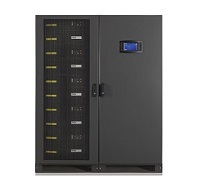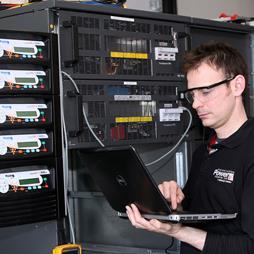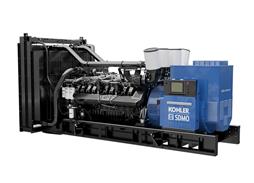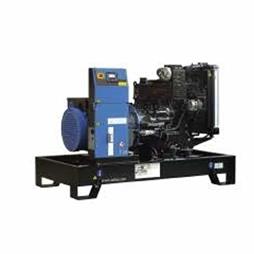UPS power protection: Why is it necessary? What are the risks?
14-10-2014
Organisations increased dependence on their computing resource, together with growing concerns over UK grid power quality and availability, highlight the critical role of UPS systems. A recent survey from Uninterruptible Power Supplies Limited (UPSL), a Kohler company, reveals users experience of mains supply problems, their concerns for the future and their priorities for UPS protection. With these results in mind, this article explains the threats posed by power quality problems today and how UPS systems can reliably provide protection you need. It also looks at factors likely to affect the future of the UKs power grid.
Most organisations today have become critically dependent on ICT equipment. Business continued survival depends on their guaranteed ability to support communications and on-line transactions in real time, on a 24/7 basis. Yet the equipment itself, even while it fulfils this role, is in turn critically dependent on clean, uninterrupted electrical power – a need that increasingly cannot be taken for granted from the National Grid mains supply. A UPS installed between a sites incoming mains and its ICT equipment can provide suitable protection. Clearly for this installation to be effective, it must filter all the threats the incoming mains can pose, and it must itself be utterly reliable. Furthermore, it must be future proofed against widely forecast deterioration in UK grid electricity quality, as well as possible changes within the site demands it is protecting.
Survey
Understanding ICT equipment users views and experience is essential in assessing the importance of the issues listed above. Accordingly, UPSL recently carried out a survey to gain an insight in to their effects. In the survey, over 75% of the respondents experienced a power outage within the last twelve months that required their UPS to protect their critical equipment. Users do not expect this situation to improve, with 78% believing that UK power reliability is going to become a major concern within the imminent future.
Given the critical requirement to provide protection on demand, its hardly surprising that 86% of the surveys respondents regard reliability as the UPSs most important attribute. However, most also recognise that guaranteed power protection takes more than just the UPS hardware. Over 72% ranked quality of service as highly important or important, while over 90% consider maintenance and emergency callout support to be as important to their business as the hardware itself. Demonstrating to UPS vendors that product design features as well as support capabilities are both significant factors in buyers selection process.
Mains-born power quality threats
According to an Office of Gas and Electricity Markets (Ofgem) Quality of Supply report (2001 – 2006) a very high percentage of outages - 93% in fact - are unplanned, which explains why the survey respondents who reported experience of outages needed UPS protection. However, power outages are not the only mains-borne events that can damage sensitive equipment; power quality issues can also cause equipment damage and loss of data. Spikes, for example, are short duration rapid voltage transitions which can be induced by thermostats or other equipment switching heavy electrical currents, or by power supply companies performing load switching. Nearby lightning strikes are also particularly serious sources. Spikes inflict both positive and negative voltage excursions which can damage or destroy electrical and electronic components. Additionally, they can corrupt software, causing a problem that becomes compounded if corrupted files are subjected to further processing before detection.






